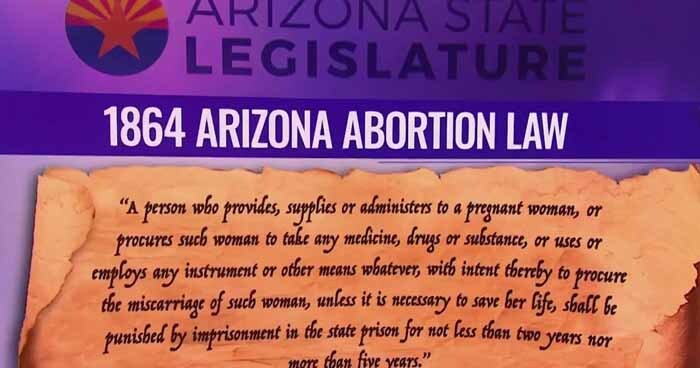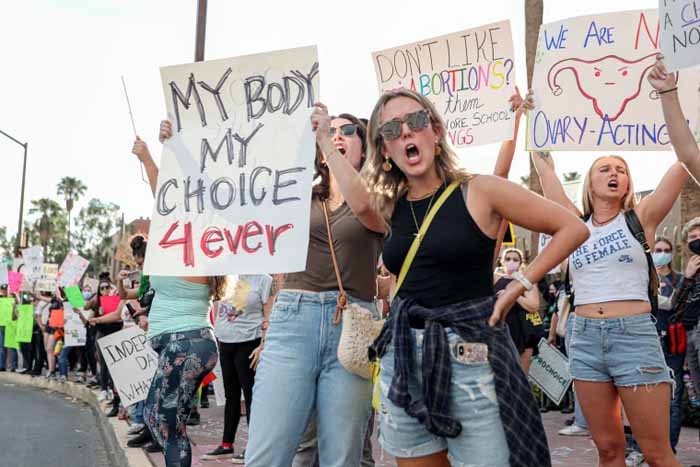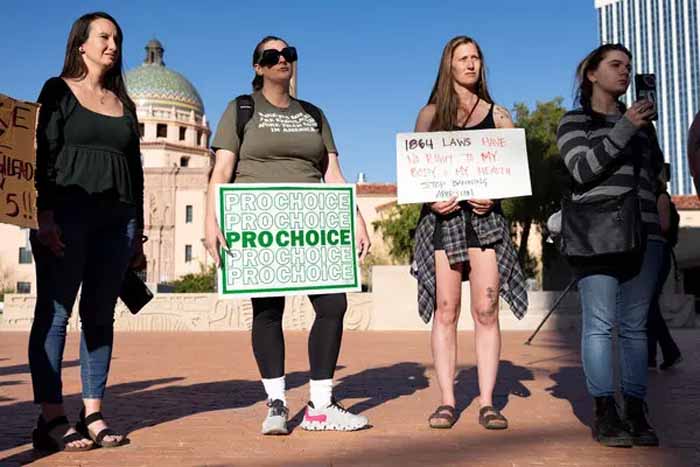
Posted by - News Staff![]() \
\
April 10, 2024 \
Filed in - Health \
Arizona Supreme Court Abortion Law of 1864 \
2.7K views \ 0 reviews
DLNews Health/Politics:
In a landmark decision by the Arizona Supreme Court, Arizona is set to join a group of states imposing significant restrictions on abortion rights. This follows the court's ruling that allows the enforcement of an 1864 law, which criminalizes nearly all abortions, with the only exception being when the woman's life is at risk. This legislation, rooted in the era long before Arizona achieved statehood, offers no exceptions for cases of rape or incest.

The enforcement of this law, expected to commence within two to eight weeks, could lead to a dramatic decline in abortions within the state. Currently estimated at 1,100 abortions per month based on a survey for the Society of Family Planning, the number could plummet to near zero, mirroring outcomes observed in other states with similar bans.
The ruling has sparked a wide range of responses across Arizona. Critics, including Arizona Sen. Eva Burch—who recently disclosed her decision to have an abortion due to a non-viable pregnancy—condemn the law as a regressive move. Burch emphasizes the ongoing battle for reproductive rights in Arizona, signaling a robust petition campaign to bring this issue to the ballot this fall. This sentiment reflects a broader public opinion captured in the 2022 midterm elections, where 60% of Arizona voters expressed support for legal abortion access nationwide.

On the flip side, proponents of the ruling, including individuals and organizations advocating for anti-abortion policies, welcome the decision as a protective measure for both potential life and women. They argue that the ruling acknowledges the sanctity of life and shields women from the physical and emotional harms associated with abortion.
This ruling's implications extend beyond the moral and ethical debates surrounding abortion. It suggests potential legal consequences for medical professionals involved in providing abortion services, with the 1864 law prescribing two to five years in prison for those convicted. This has raised concerns among healthcare providers about the legal risks now associated with abortion, complicating the decision-making process in patient care.
Planned Parenthood of Arizona, while recognizing the legal landscape's constraints, vows to continue offering abortion services for up to 15 weeks for a limited period, based on an existing agreement in a related case. This commitment reflects the broader national divide following the U.S. Supreme Court's decision to overturn Roe v. Wade, with states either enacting new bans and restrictions or reinforcing protections for abortion access.
The Arizona Supreme Court's decision has ignited a complex conversation about reproductive rights, legal precedents, and the societal implications of such significant legal actions. As the state navigates this contentious issue, the responses from political leaders, activists, and the general public underscore the profoundly personal and divisive nature of abortion rights in America today.
Click the link below for the original document:
"Arizona Court Allows Enforcement of 1864 Law... 0 0 0 579 3
3 photos

Desert Local News is an invitation-only, members-based publication built on fact-checked, non-biased journalism.
All articles are publicly visible and free to read, but participation is reserved for members—comments and discussion require an invitation to join.
We cover local, state, and world news with clarity and context, free from political agendas, outrage, or misinformation.
Comments